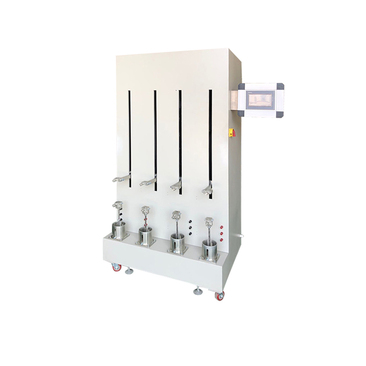insulation resistance testers suppliers
Understanding Insulation Resistance Testers A Guide for Suppliers
In the world of electrical testing, insulation resistance testers play a crucial role in ensuring the safety and efficiency of electrical systems. As more businesses and industries rely on electrical power for their operations, the demand for quality insulation resistance testers has significantly increased. In this article, we will explore the importance of insulation resistance testers, the features to consider when selecting suppliers, and the market trends affecting this sector.
What Are Insulation Resistance Testers?
Insulation resistance testers, often referred to as megohmmeters, are devices used to measure the electrical resistance of insulation materials. They help detect deterioration in insulation, identify potential electrical faults, and ensure compliance with safety regulations. By applying a high-voltage DC signal to the insulation and recording the resulting current, these testers provide a resistance measurement that is indicative of insulation quality.
Importance of Insulation Resistance Testing
Regular testing of insulation resistance is essential for various reasons
1. Safety Insufficient insulation can lead to electrical shock hazards and fires. Regular testing ensures that electrical systems are safe for use.
2. Preventive Maintenance Identifying insulation issues before they lead to equipment failure can save companies from expensive downtime and repair costs.
3. Regulatory Compliance Many industries have strict standards governing electrical safety. Insulation resistance testing helps organizations maintain compliance and avoid costly penalties.
4. System Longevity By monitoring insulation health, companies can extend the lifespan of their electrical equipment, leading to better return on investment.
Key Features to Consider When Selecting Insulation Resistance Testers
When looking for insulation resistance testers, suppliers should consider several important features
1. Measurement Range Testers should cover a wide range of insulation resistances, typically from 0.01 MΩ to several GΩ, to accommodate various applications.
insulation resistance testers suppliers

2. Voltage Levels Different test voltages (50V, 100V, 250V, 500V, 1000V) should be available to suit different insulation materials and requirements.
3. Test Time Control The ability to control test time allows more precise and repetitive testing, which is vital in monitoring insulation degradation over time.
4. Data Storage and Analysis Advanced models come with features that allow for data storage, retrieval, and analysis, enhancing the ability to track performance trends.
5. User-Friendly Interface A clear display and intuitive operation are essential for ensuring that technicians can use the device efficiently without extensive training.
Choosing the Right Supplier
With the increasing demand for insulation resistance testers, finding a reliable supplier is paramount. When selecting a supplier, consider the following aspects
1. Reputation and Experience Look for suppliers with a proven track record in the industry. Experienced suppliers are more likely to provide high-quality products and excellent customer service.
2. Product Range A supplier that offers a broad selection of testers and testing accessories can better meet diverse needs.
3. Technical Support Good suppliers provide comprehensive technical support, including guidance on usage, calibration, and troubleshooting.
4. Warranty and Service Ensure that the supplier offers warranties and service agreements for their products, which can help mitigate costs related to maintenance and repairs.
5. Compliance and Certifications Check if the products meet relevant industry standards and certifications, ensuring quality and reliability.
Conclusion
The growing reliance on electrical systems across various sectors underscores the significance of insulation resistance testing. As suppliers cater to this need, understanding the importance of these testers and the criteria for selecting the right products can significantly enhance safety and efficiency in electrical applications. By focusing on quality and reliability, suppliers can establish themselves as trusted partners in the electrical testing landscape.
-
Why the Conductor Resistance Constant Temperature Measurement Machine Redefines Precision
NewsJun.20,2025
-
Reliable Testing Starts Here: Why the High Insulation Resistance Measuring Instrument Is a Must-Have
NewsJun.20,2025
-
Flexible Cable Flexing Test Equipment: The Precision Standard for Cable Durability and Performance Testing
NewsJun.20,2025
-
Digital Measurement Projector: Precision Visualization for Modern Manufacturing
NewsJun.20,2025
-
Computer Control Electronic Tensile Tester: Precision and Power for the Modern Metal Industry
NewsJun.20,2025
-
Cable Spark Tester: Your Ultimate Insulation Assurance for Wire and Cable Testing
NewsJun.20,2025
 Copyright © 2025 Hebei Fangyuan Instrument & Equipment Co.,Ltd. All Rights Reserved. Sitemap | Privacy Policy
Copyright © 2025 Hebei Fangyuan Instrument & Equipment Co.,Ltd. All Rights Reserved. Sitemap | Privacy Policy
